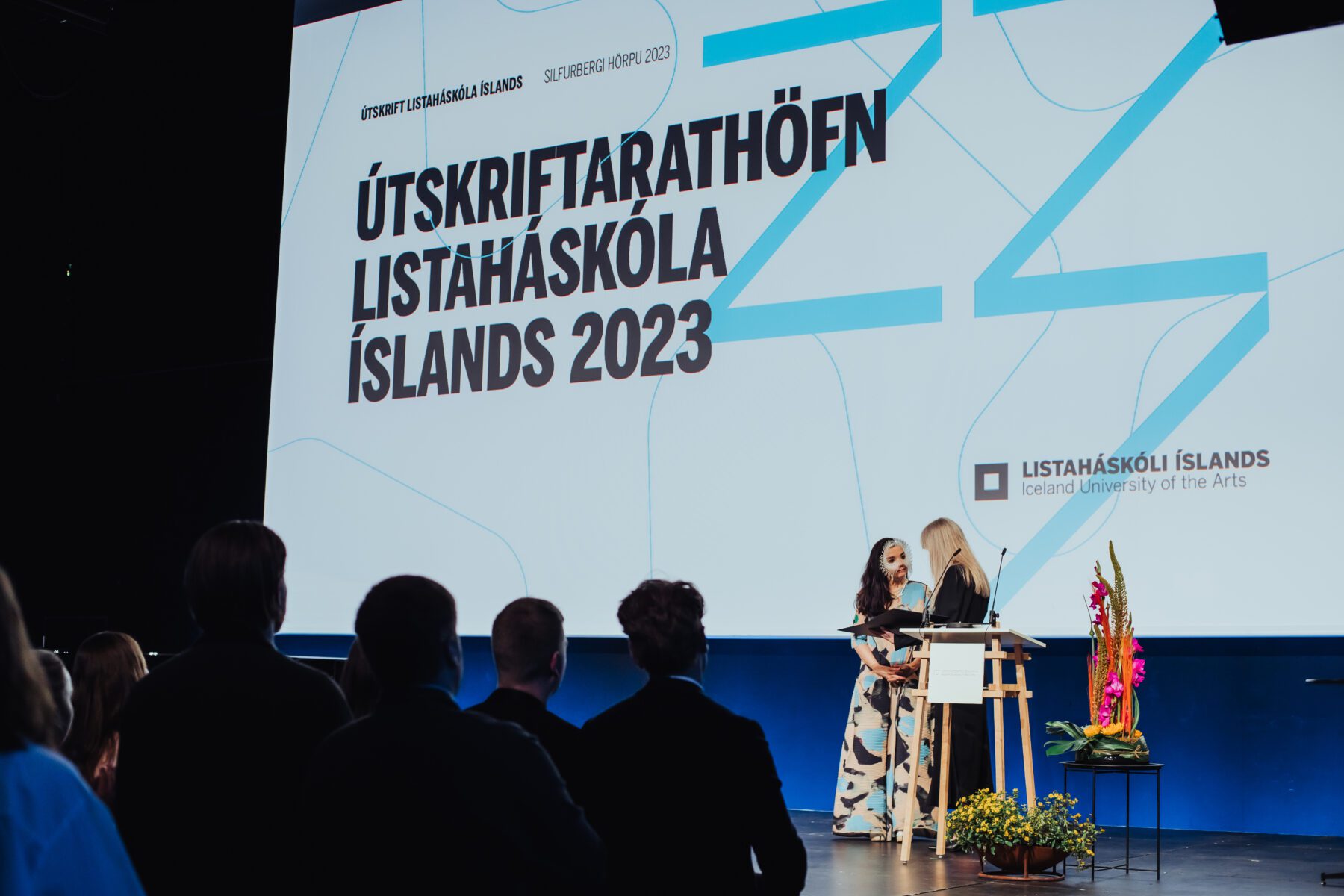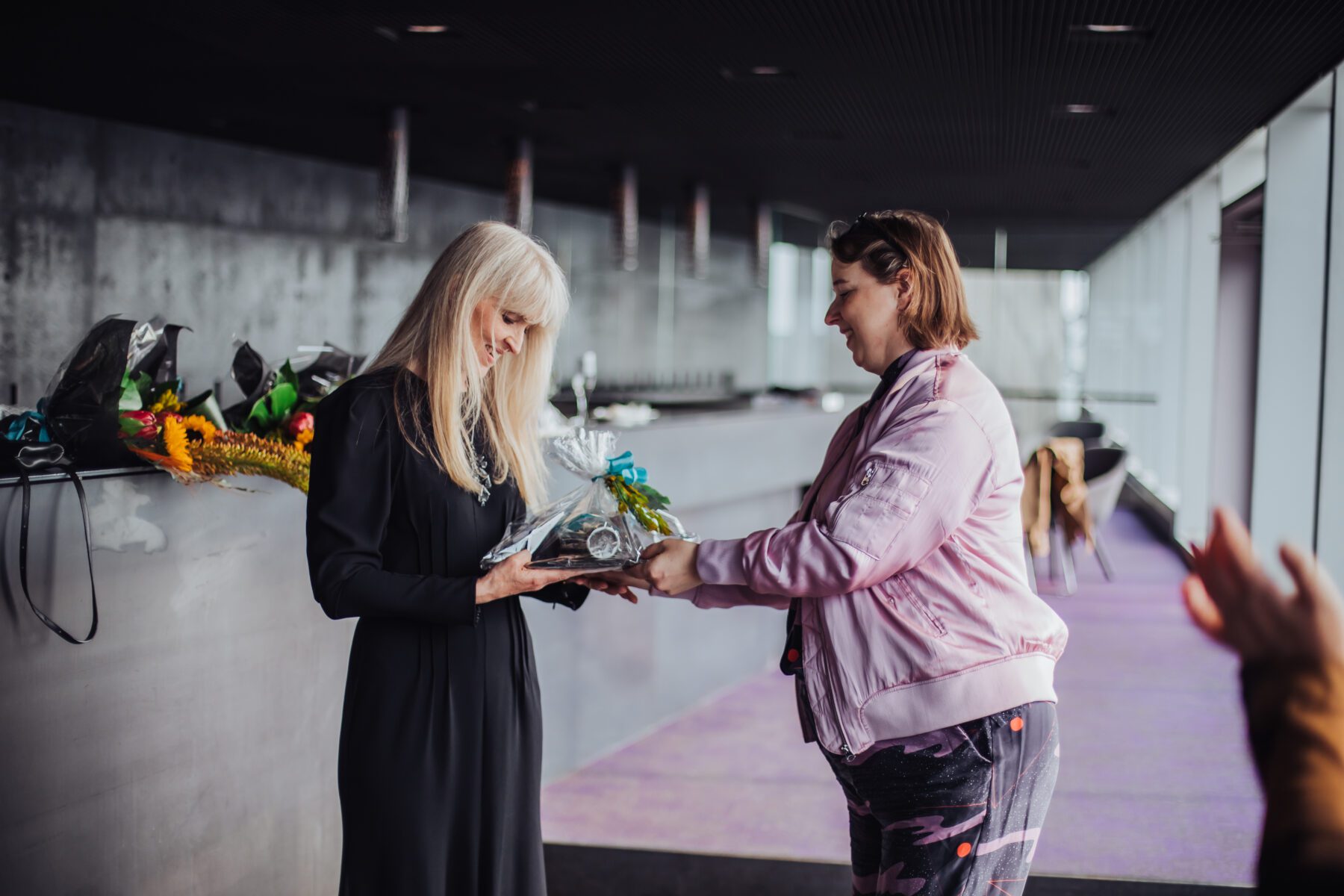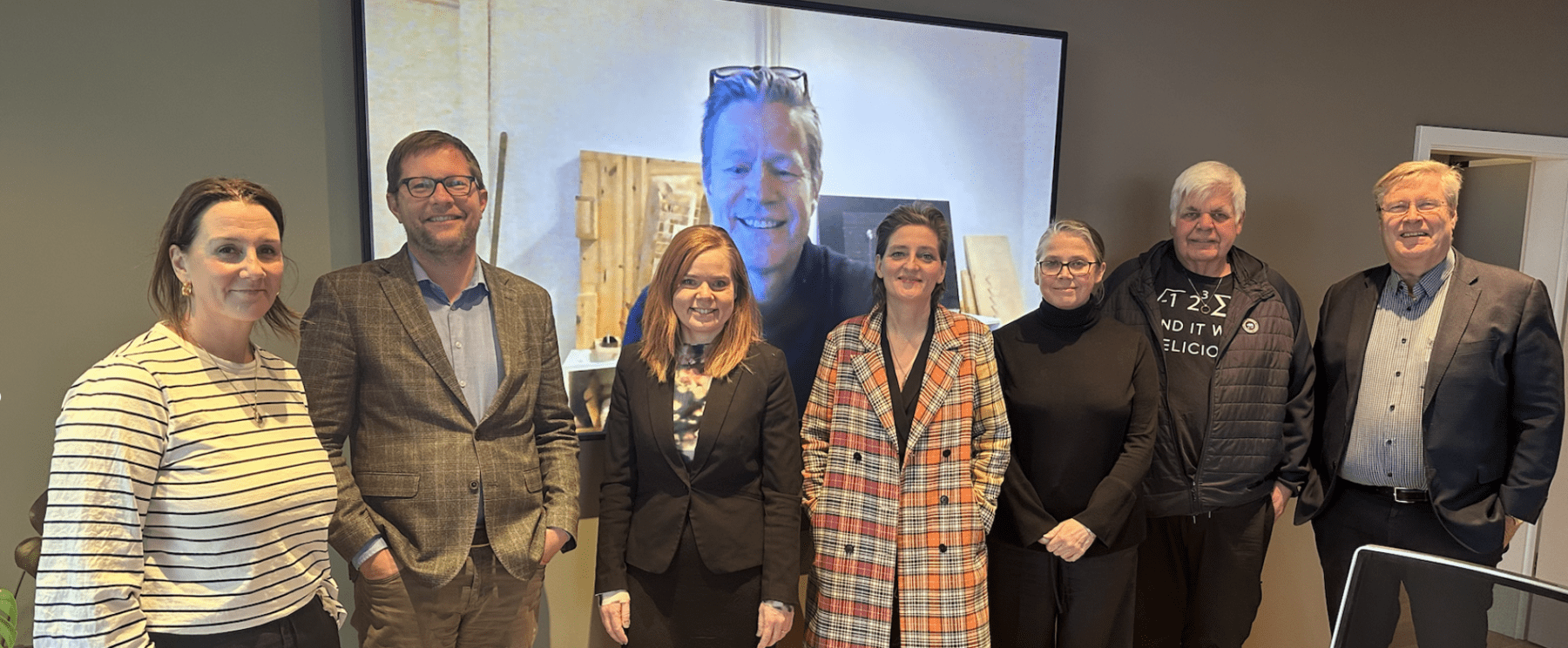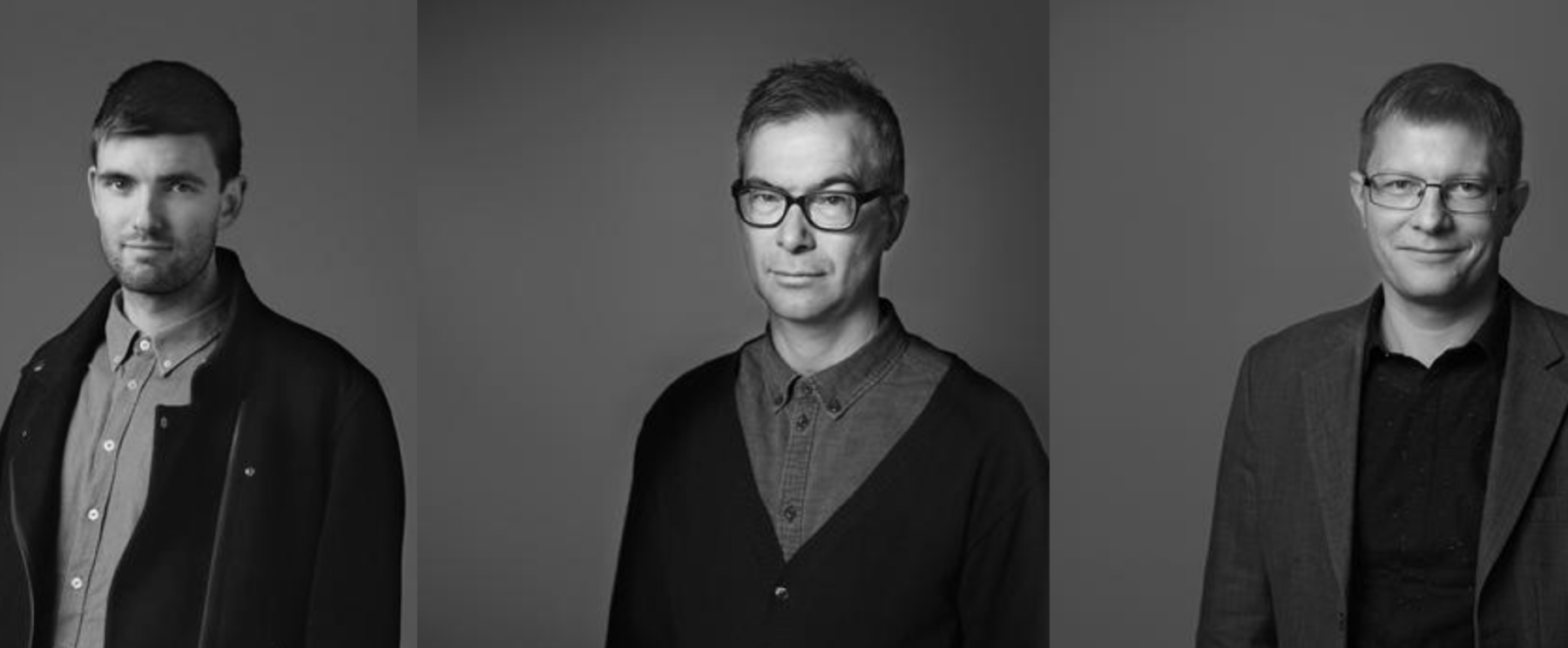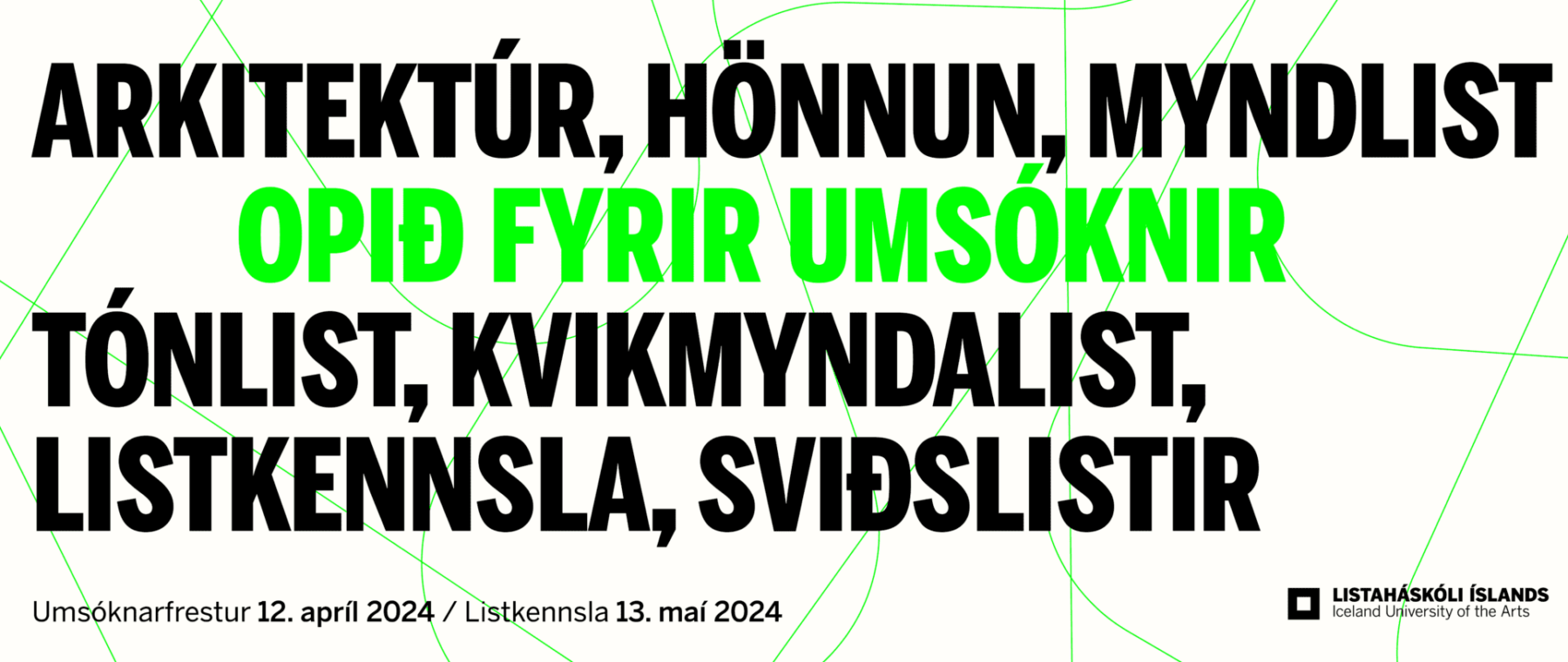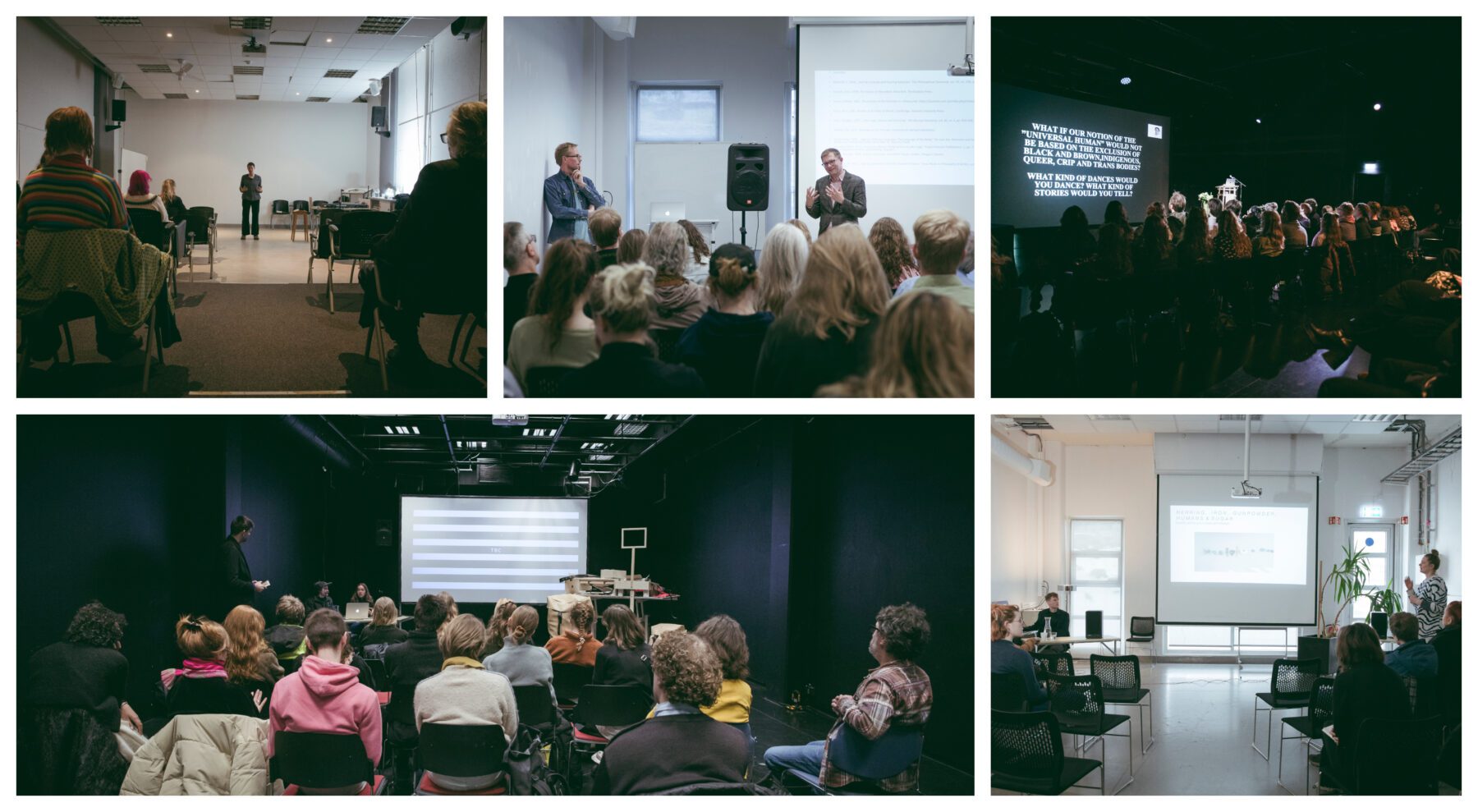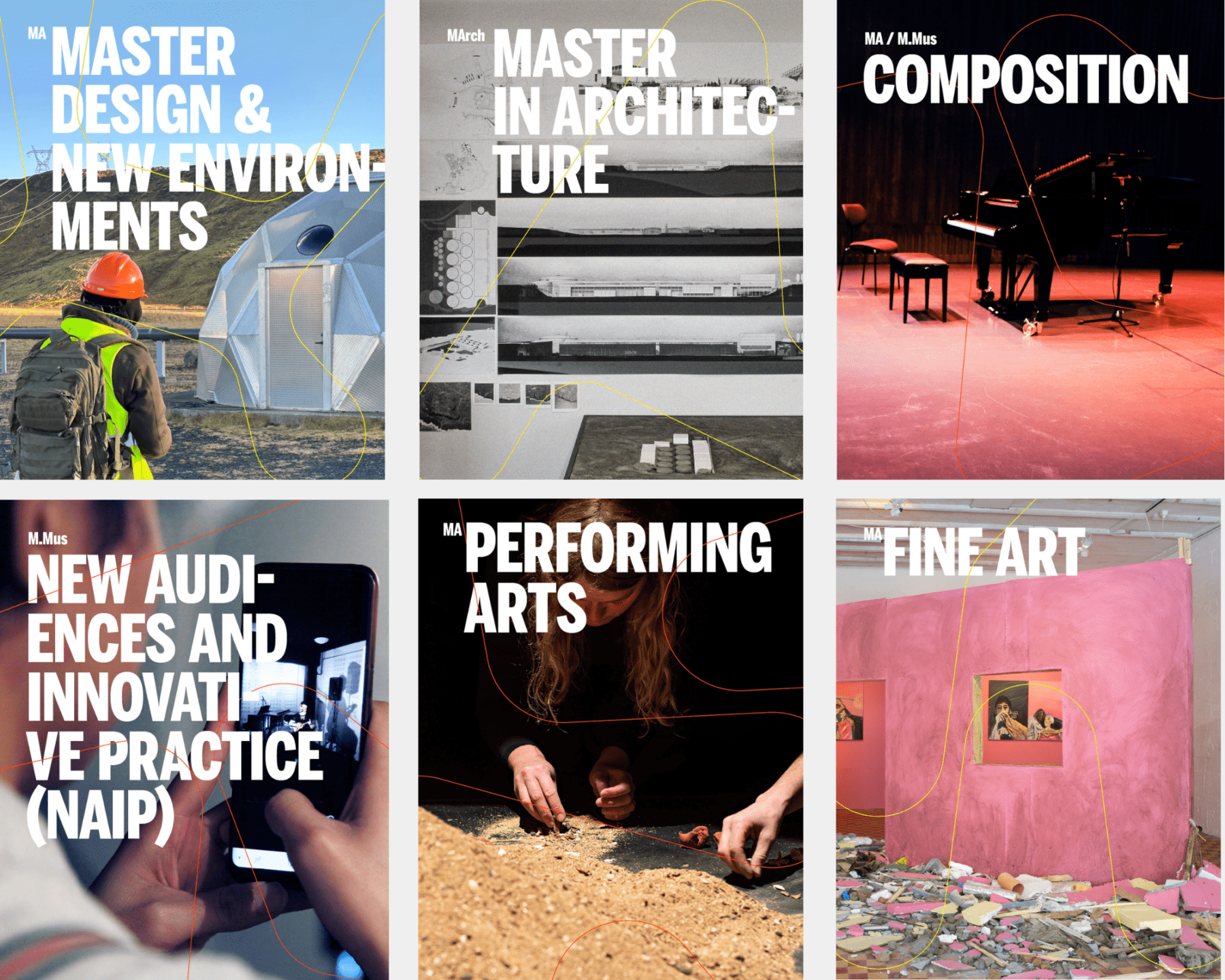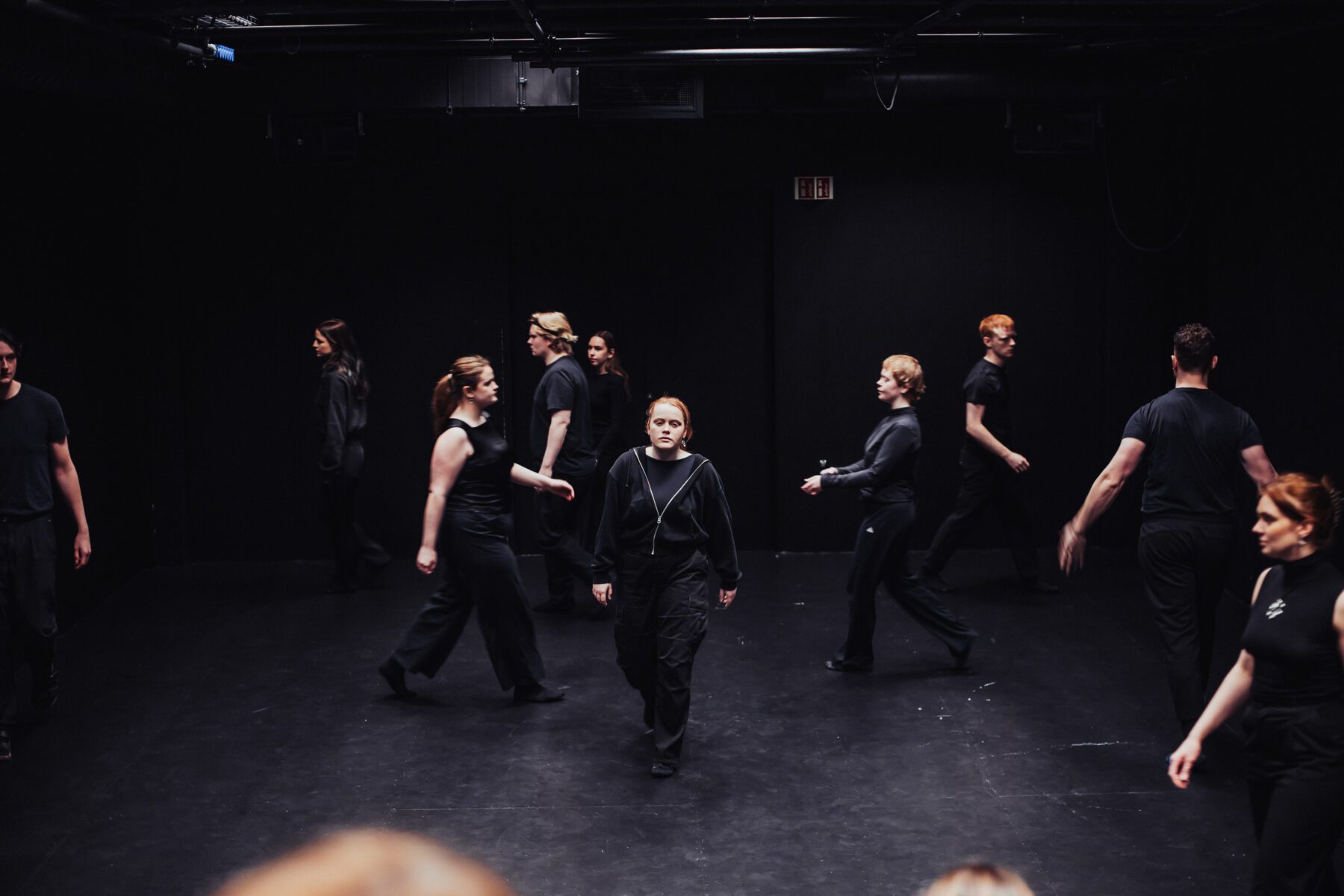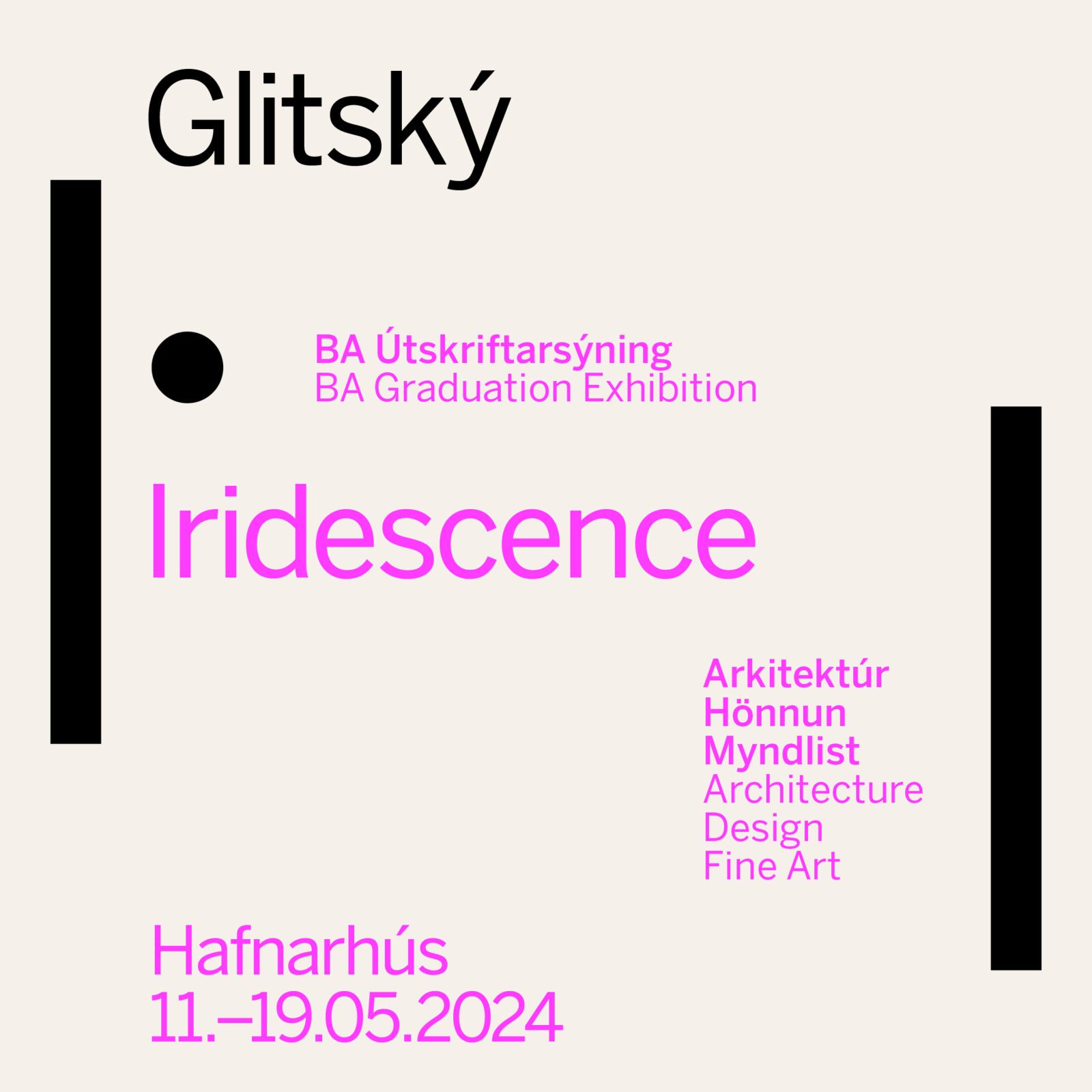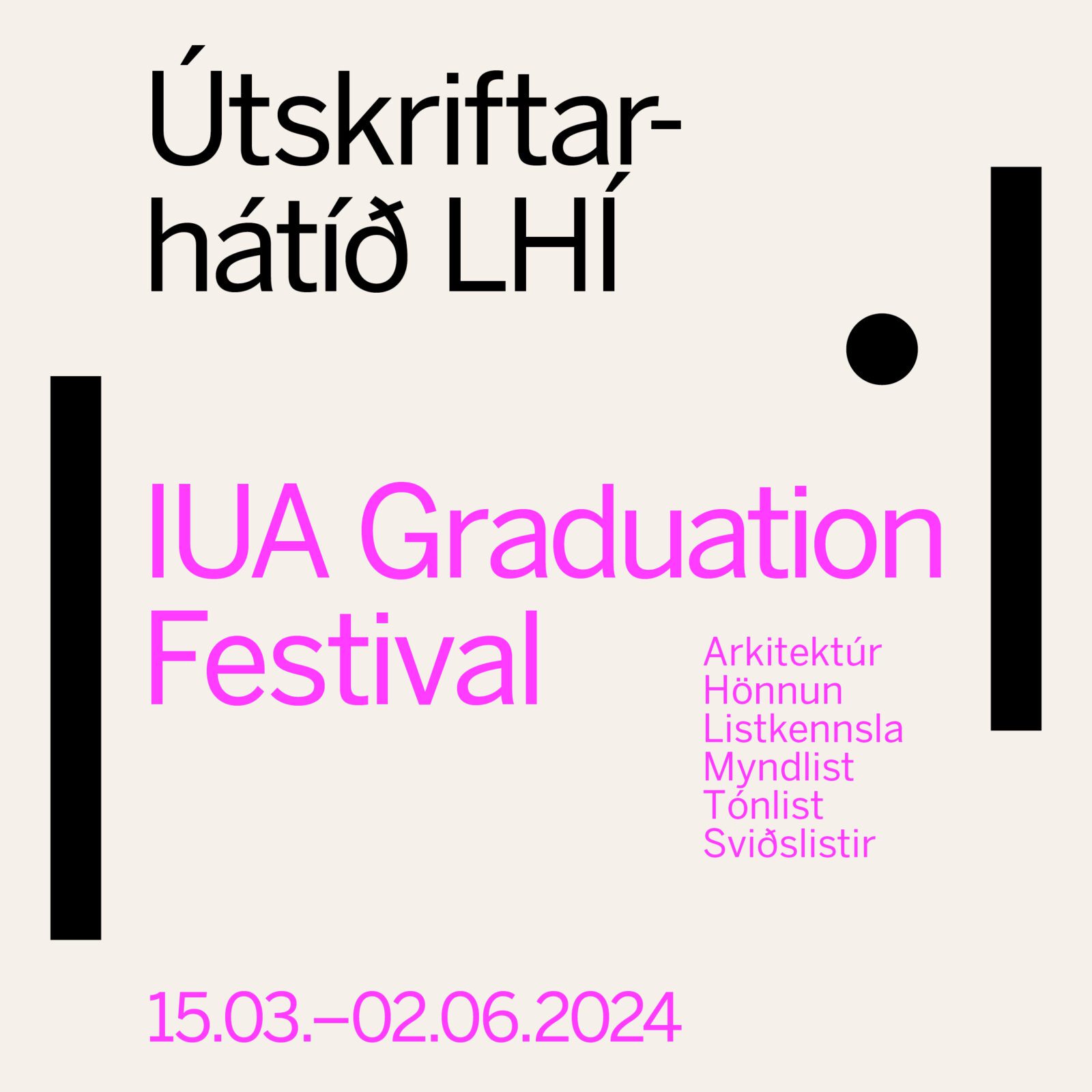Automatic translation by Google Translate.We cannot guarantee that it is accurate.
Skoða vefinn á ÍslenskuFine Art MA
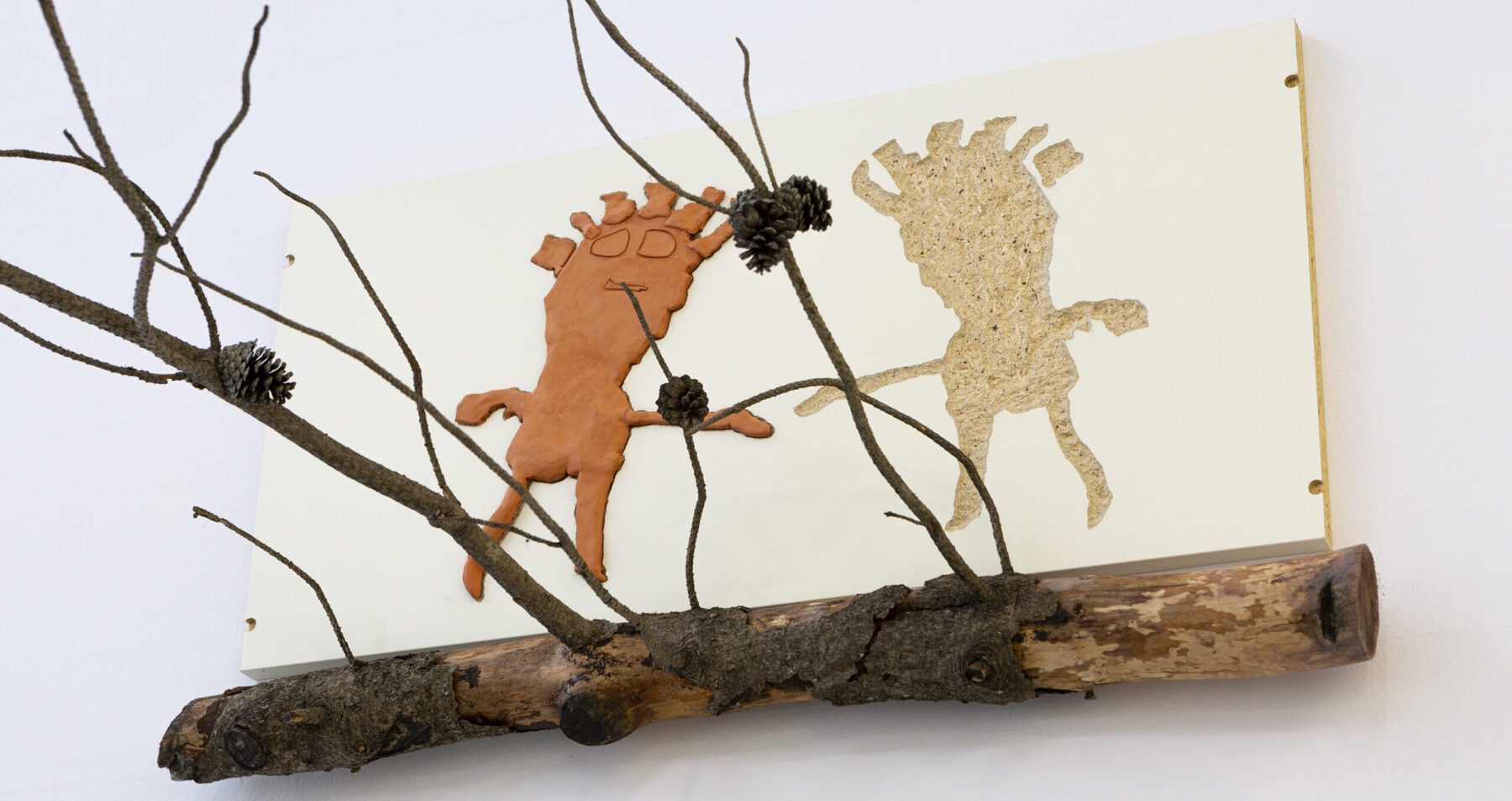

The Master Programme in Fine Art at the Iceland University of the Arts is research– based, and is designed to facilitate the development of artists´ practice through engagement with materials, issues and ideas.
Upplýsingar um nám eru á ensku hjá námsleiðum þar sem kennslutungumál er enska.
About the study programme
Societal and environmental concerns are considered and informed by the contexts of theory and practice. High emphasis is placed on individuality and flexibility in students’ choice of materials and methods. Academic and technical support is provided by active practitioners.
The programme fosters inquisitive and innovative approaches from environmentally aware practitioners, unafraid to critique and challenge societal norms and situations, and exercising the potential role of art in world-making and shaping.
The full-time study programme spans four semesters over a two-year period and is taught through workshops, individual tutorials, group crits, seminars and lectures. A range of highly qualified artists and guest lecturers are associated with the Department who, for the final project support students on a one-to-one basis in the development of their artworks. As part of the programme there are opportunities for group and solo-exhibitions both within the premises of the University and as part of the dynamic Icelandic art scene within Reykjavík and around Iceland.
Course structure
Semester one: Introduction to artistic research and methods, residency, gallery visits and seminar sessions, one-to-one tutorials and group crits, an intermediate group exhibition at IUA, optional courses and lectures.
Semester two: studio practice, tutorials and group crits with staff and visiting artists, site-specific project in a public place, collaboration, introduction to thesis writing, optional courses and lectures.
Semester three: Combining theory and practice through individually supported thesis writing and studio practice, allocation of a specific MA thesis- and MA project instructors, optional courses and lectures.
Semester four: One-to-one tutorials with MA project instructor, group crits and tutorials with staff and visiting artists, solo exhibition in one of the IUA galleries, tutorials with MA thesis instructors, completion of MA thesis, MA degree group exhibition, Graduation.
After graduation
Graduates of the MA programme in art are equipped to work independently and in diverse contexts in art and a variety of critical and inquisitive fields. MA studies also prepare students for further research (doctoral studies).
Application and admission process
IUA employs a standard electronic application form.
The application process is in two steps, first submit the application and then pay the application fee.
Please note: It is possible to save the application while working on it.
-
The Application
MandatoryAn application is not valid until the applicant has submitted the application and paid the application fee. Applicants must submit the following documents:1. Certified copy of degree certificate(s) and programme / course transcript(s) (PDF)Applicants should submit a detailed record of higher education up to the present, including programmes of study taken and grades achieved. This may be submitted in Icelandic or English.2. References from two referees (PDF)Applicants must submit references from two referees, one academic reference and one professional reference. Each reference should not exceed one page. The references may be submitted in Icelandic or English.Applicants add two referees (names and emails) in the application form. When applicants have submitted the application, the referees will receive an email from the IUA asking them to submit a reference for the applicant.Applicants will receive a confirmation when the referees have submitted the reference.3. Statement (PDF)Letter of Motivation (Cover letter).
Applicants for the Master Programme in Fine Art must write a short explanation about their decision to apply for this specific programme and how the focus of the programme ties in with their aims towards a future professional role as a contemporary artist.The Letter of Motivation can be viewed as a short introduction to the artist statement.The Letter of Motivation should be written in English. Maximum length one page.4. Research proposal (PDF)Artist Statement of Study.
The Artist Statement of Study should indicate each applicant’s interests and intended self-direction in relation to artistic practice and contemporary art. It should outline the practical and conceptual concerns in their own art practice and outline the intended focal point for the practice within an MA Fine Art studies. The focal point should highlight plans for future study and research, rather than end results or outcomes allowing space for research, growth and learning.The Artist Statement of Study should be written in English. Two pages.5. Curriculum Vitae (PDF)Applicants must submit a CV of relevant education and professional experience, language proficiency and general information about the applicant. The CV should be written in English.6. Portfolio of works (PDF/URL)Applicants for the Master Programme in Fine Art must gather prime examples of their work into a digital portfolio, which they submit with their formal application. This can include a PDF document or links to external websites, videos, audio, images etc.The submitted work should reflect the applicant’s character, shed light on main interests, demonstrate skills and competences, and make it accessible to comprehensively read the applicants ability for original creation and communication of ideas. The portfolio should include examples of 5 to 10 original works.Accompanying the external links should be a short synopsis or description. -
Admission Process
MandatoryA specially appointed admission committee assesses the submitted applications from documentation provided.If the applicant is considered for acceptance, he/she will be called for an interview where the required documents will be discussed. The interview will be held in English and can take place online. After the interview process the application committee will make their final selection.The admission committee looks especially for the applicant’s ability to present their artistic ideas and to discuss themes and subjects related to fine art; originality in subject matter; a grounded understanding of the medium; an artistic and professional vision.Furthermore, they evaluate the applicant’s ability to take initiative and work independently, their creativity, ability to collaborate, and whether the applicant possesses independent and critical thinking. Applicants will have completed BA/BS Degree or equivalent and it is desirable that they have acquired work experience in the field of fine art. -
Admission & Language Requirements
Admission requirements
Applicants will have completed a BA degree in Fine Art or in related fields of art and theory. Applicants that do not fulfill the above requirement can be admitted to the programme provided that they demonstrate an understanding of fine art, its principles and mediums. It is an advantage for applicants to have had some time to work as artists after completing their BA degree.
Furthermore, applicants are required to supplement their application with a statement outlining their area of interest within the field and the methods and/or research questions that they intend to investigate further through their art practices and study.
Language requirements
The Master Programme in Fine Art is an international programme conducted in English. Students must be proficient in spoken and written English in the academic context. If there is doubt concerning language skills, applicants may be required to submit evidence of English proficiency
-
Registration & Tuition Fees
Students at the Iceland University of the Arts do not need to pay tuition fees starting autumn 2024 except for an annual registration fee which is ISK. 75,000.
Different rules for tuition fees may apply to applicants with citizenship outside the EU, EEA and Switzerland. For further information, please contact lhi@lhi.is





